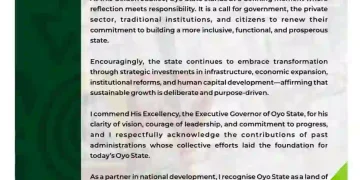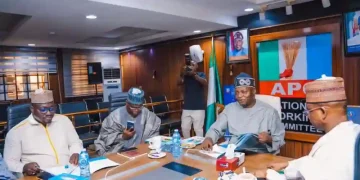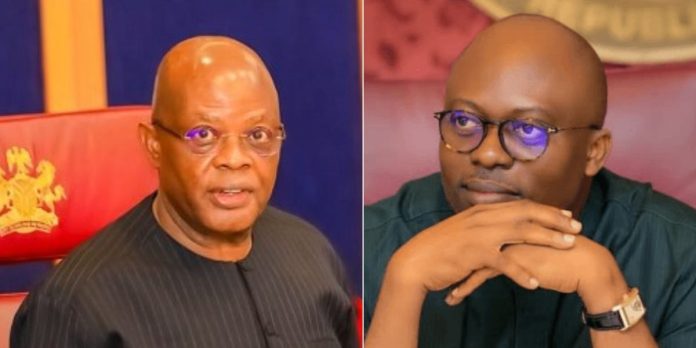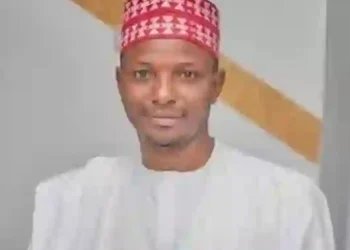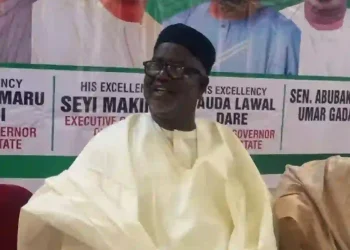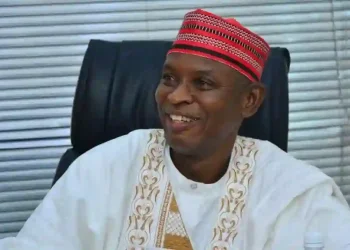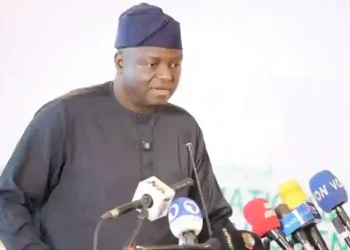President Bola Tinubu and suspended Rivers State Governor Siminalayi Fubara are both returning to Nigeria today, Tuesday, September 16, as preparations intensify for the restoration of democratic governance in Rivers State on Thursday.
President Tinubu is cutting short his vacation in France to return to Abuja, while Fubara is also expected back from London. Their simultaneous return comes as Vice Admiral Ibok-Ete Ibas (retd.), the state’s sole administrator, prepares to conclude six months of emergency rule with a series of transition activities.
Background to the Crisis
The Rivers State political crisis reached its peak on March 18, 2025, when President Tinubu declared a state of emergency in the oil-rich state. The extraordinary measure followed prolonged political instability, constitutional breaches, and security threats stemming from a bitter power struggle between Governor Fubara and former Governor Nyesom Wike.
The crisis escalated in December 2023 after Fubara demolished the state’s House of Assembly complex, triggering a prolonged battle over the legitimacy of the legislative arm. The situation worsened when 27 lawmakers loyal to Wike defected from the Peoples Democratic Party (PDP) to the All Progressives Congress (APC), sparking legal disputes over their status.
On February 28, 2025, the Supreme Court delivered a critical ruling that the defected lawmakers remained valid members of the Assembly while faulting Fubara’s actions as unconstitutional and despotic. The court noted that the state had collapsed into one-man rule due to the absence of a functioning legislature.
Despite this ruling, governance remained paralyzed with the executive and legislature at loggerheads. By March 2025, the state’s annual Appropriation Bill had still not been passed, effectively stalling government operations.
Security Concerns and Pipeline Attacks
The political crisis took a dangerous turn just before the emergency declaration when explosions rocked critical oil infrastructure. On March 17, an explosion damaged a section of the Trans Niger Pipeline in Bodo Community, Gokana Local Government Area. The following day, another explosion severed a pipeline manifold in the Omwawriwa axis of Ogba-Egbema-Ndoni Local Government Area.
President Tinubu expressed serious concern over what he described as vandalism by militants allegedly acting in support of Governor Fubara. These incidents occurred at a particularly sensitive time when the federal government was working to increase Nigeria’s crude oil output and prevent pipeline vandalism.
The Emergency Administration
Vice Admiral Ibok-Ete Ibas, who served as Chief of Naval Staff from 2015 to 2021 under former President Muhammadu Buhari, was appointed as sole administrator to oversee Rivers State affairs until normalcy could be restored. His appointment marked the beginning of six months of emergency rule designed to stabilize the politically volatile state.
Transition Activities
As the emergency rule approaches its end, Ibas has initiated a comprehensive transition program. The process began on Sunday with a thanksgiving service in Port Harcourt, marking the formal commencement of handover preparations.
A key event in the transition is a public lecture scheduled for Tuesday at the Government House Banquet Hall. Themed “Democracy and Good Governance,” the lecture will feature Ibas as the special guest of honor, with invited dignitaries expected to be seated by 9:30 a.m.
Legal Developments
Meanwhile, the Rivers State High Court has struck out a lawsuit challenging the legality of the emergency administration and the conduct of local government elections held on August 30. The suit, filed by Port Harcourt-based lawyer William Abayomi against President Tinubu, Ibas, and the Rivers State Independent Electoral Commission, was dismissed on grounds of lack of jurisdiction and standing.
Justice Stephen Jumbo ruled that only the Supreme Court had exclusive jurisdiction to hear such cases during emergency rule. The court also declared that the local government elections were constitutional and legitimate, having been conducted by the electoral commission rather than by the governor or administrator directly.
Looking Ahead
The convergence of both President Tinubu’s and Governor Fubara’s returns from abroad has heightened anticipation around the political transition. Stakeholders across the state and nation are watching closely as Ibas prepares to hand back power after steering Rivers State through what many describe as one of its most turbulent political periods.
The successful conclusion of the emergency administration on Thursday, September 18, will mark a significant milestone in Nigeria’s democratic governance, potentially serving as a template for managing future political crises in other states.
As Rivers State prepares to return to constitutional governance, questions remain about how the underlying political tensions between Fubara and Wike will be managed to prevent a recurrence of the crisis that necessitated federal intervention.

Madukwe B. Nwabuisi is an accomplished journalist renown for his fearless reporting style and extensive expertise in the field. He is an investigative journalist, who has established himself as a kamikaze reporter.




